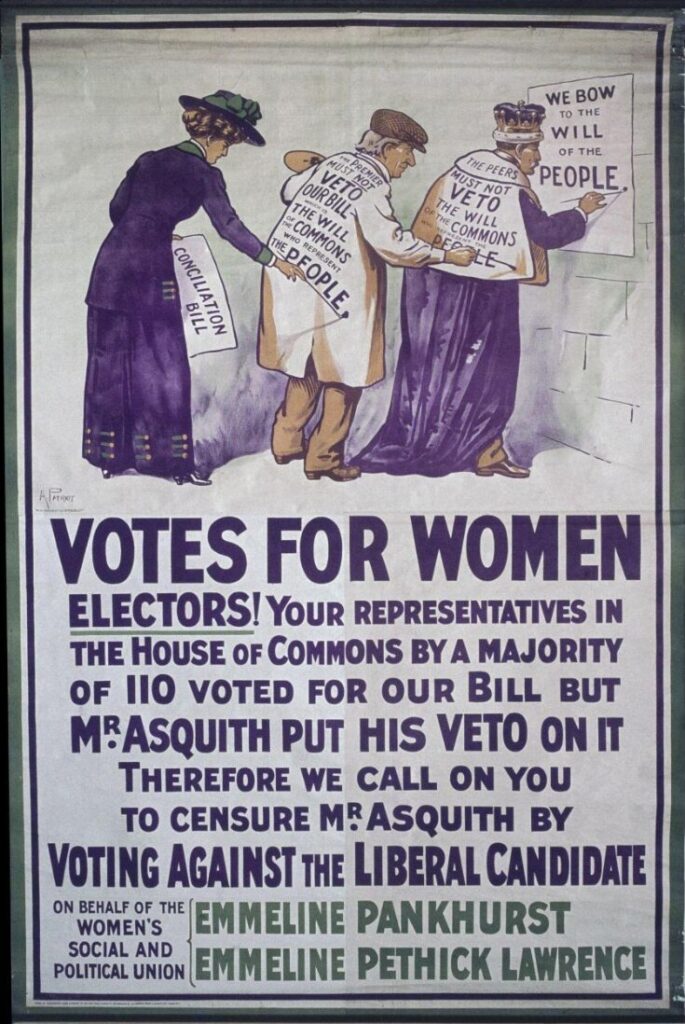On February 6, 1918, the Representation of the People Act of 1918 was passed in England. This act enfranchised women over the age of thirty who were either a member or married to a member of the local government. On that day, around 8.4 million women gained the right to vote.

The terms of the act were as follows:
- All men over 21 gained the vote in the constituency where they were resident. Men who had turned 19 during service in connection with World War I could also vote even if they were under 21, although there was some confusion over whether they could do so after being discharged from service. The Representation of the People Act 1920 clarified this in the affirmative, albeit after the 1918 general election.
- Women over 30 years old received the vote, but only if they were registered property occupiers (or married to a registered property occupier) of land or premises with a rateable value greater than £5 or of a dwelling-house and not subject to any legal incapacity, or were graduates voting in a university constituency.
- Some seats were redistributed to industrial towns. Seats in Ireland were amended separately, by the Redistribution of Seats (Ireland) Act 1918.
- All polls for an election to be held on a specified date, rather than over several days in different constituencies as previously.
Because of the act, the size of the electorate tripled from 7.7 million in 1912 to 21.4 million by the end of 1918. Women accounted for just over thirty-nine percent of this electorate. However, considering women had to reach the age of thirty before being allowed to vote, many were upset. If the age limit were made the same for women as it were for men, twenty-one years old, then women would have accounted for a much higher percentage.
Suffragette Millicent Fawcett believed that women should have the same age restriction as men. However, she accepted that if women were made equal, they would account for more than fifty percent of the vote. At that point in time, there were one and a half million more women than men in the country. This was primarily due to the high loss of life during World War I. Many throughout the country, including female suffrage supporters, believe that men should still hold the majority of votes. On this, Fawcett commented that Britain was ” governed not by logic, but by Parliament.”[1]
Millicent Garrett Fawcett, The Women’s Victory and After – Personal Reminiscences, 1911-1918 (Sidgwick & Jackson, 1920).
[1] Millicent Garrett Fawcett, The Women’s Victory and After – Personal Reminiscences, 1911-1918 (Sidgwick & Jackson, 1920), 138-142.


Leave a Reply